reviews by Irene Pagano
SHORTer – Emilia Romagna Film Festival Net
is a network of people involved in the production of culture and committed to promoting cinema and audiovisual works in the Emilia-Romagna region. As conceived by the founding festivals (Concorto Film Festival, Reggio Film Festival, Ravenna Nightmare Film Fest, Sedicicorto Forlì International Film Festival, and YoungAbout Film Festival), SHORTer turns its attention to the rich production of short films in the Region and aims to promote regional works, authors, and productions, without excluding anyone basing on genre, category or format.
Right now the network is made up by the following festivals: Amarcort (Rimini); Animare Cartoon Film Festival (Forlì); Ce l’ho Corto (Bologna); Concorto (Pontenure, PC); Iranfest (Forlì); Malatesta (Cesena, FC); Mente Locale (Valsamoggia, BO); Nightmare (Ravenna); Not Film Fest (Santarcangelo, RN); Porretta Cinema (Porretta Terme, BO); Reggio Film Festival (Reggio Emilia); Sedicicorto (Forlì, FC); Young About (Bologna); Visioni Fantastiche (Ravenna); Visioni Italiane (Bologna).
GOLDer Short
GOLDer Short is an award that will be given by SHORTer to the 5 best short films from Emilia Romagna produced in 2020.
The members of the network took into account all the shorts produced by authors living in Emilia-Romagna, or coming from Emilia-Romagna, and selected a shortlist of 37 titles. Then five short films were nominated, namely the winners of the GOLDer award.
We will screen four of these short films that won the GOLDer award of the network.
The selected shorts
Ape Regina | Nicola Sorcinelli | 13′
Gas Station | Olga Torrico | 9’42”
Giusto il tempo per una sigaretta | Valentina Casadei | 15′
La città delle cose dimenticate | Francesco Filippi, Massimiliano Frezzato | 17’30”
Reviews by Irene Pagano
APE REGINA
When telling stories of contact and communion between different lives and people, it can be very difficult not to turn this interaction into an example. “Ape Regina”, written by Alessandro Padovani and directed by Nicola Sorcinelli, avoids oversimplification with care and elegance.
Asim is an immigrant, chased by the police and determined to travel to Finland on foot. Elsa is a grumpy, strong-willed widow whose job as a beekeeper in an isolated corner of the Italian countryside becomes increasingly difficult after the disappearance of both her beloved husband and the queen bee of their hive. As Elsa welcomes Amin in her home and offers him shelter, what we witness isn’t the generous act of a saviour, but that the miracle of a recognition between two indivuals who both refuse to march to the beat of other people’s drum. They barely learn anything about each other, they never learn to speak each other’s language. Instead, they rejoice in their difference and find strenght in it. The viewer is never made to believe that Elsa and Amin have a specific function in each other’s lives: their encounter neither rescues nor enlightens either of them. Their existences simply collide with one another, and so do their own, very separate types of “otherness”.
While Elsa runs alone in the grass, she looks unfaltering, powerful and content. Neither her nor Amin ever needed a hive to be whole.
GAS STATION
For some reason, humans often find themselves drawn towards liminal spaces. They are the sort of places that stand in between starting points and destinations. The moments we spend there are hurried and insignificant, yet they sometimes seem to linger on forever. They represent a threshold past which we might no longer be able to reverse the direction of our journey. We pass through an inexhaustible number of liminal spaces in our everyday life: waiting rooms, hallways, elevators, gas stations. We mostly pay no mind to them, but every once in a while a feeling of dread and uncertainty might take ahold of us as we cross them. What we ask ourselves at that point is, would it be scarier to walk out into the unknown or to get stuck on the border right before it, free from the level of responsability that freedom of choice entails?
In her debut short film “Gas Station”, Olga Torrico explores this struggle by portaying in detail the scattered thoughts, emotions and memories of a young musician paralysed by the threat of failure. Through stock footage and pieces of interior monologue alternating with mundane sequences of the main character working and chatting with an old friend, Torrico allows us to observe the very indefinite, very familiar forms of change and growth and of the disquiet that they bear. She reminds us that paralysis might be followed by epiphany and that from the guts of chaos beauty might arise again, if one is brave enough to stomach it.
GIUSTO IL TEMPO PER UNA SIGARETTA
For some reason, humans often find themselves drawn towards liminal spaces. They are the sort of places that stand in between starting points and destinations. The moments we spend there are hurried and insignificant, yet they sometimes seem to linger on forever. They represent a threshold past which we might no longer be able to reverse the direction of our journey. We pass through an inexhaustible number of liminal spaces in our everyday life: waiting rooms, hallways, elevators, gas stations. We mostly pay no mind to them, but every once in a while a feeling of dread and uncertainty might take ahold of us as we cross them. What we ask ourselves at that point is, would it be scarier to walk out into the unknown or to get stuck on the border right before it, free from the level of responsability that freedom of choice entails?
In her debut short film “Gas Station”, Olga Torrico explores this struggle by portaying in detail the scattered thoughts, emotions and memories of a young musician paralysed by the threat of failure. Through stock footage and pieces of interior monologue alternating with mundane sequences of the main character working and chatting with an old friend, Torrico allows us to observe the very indefinite, very familiar forms of change and growth and of the disquiet that they bear. She reminds us that paralysis might be followed by epiphany and that from the guts of chaos beauty might arise again, if one is brave enough to stomach it.
LA CITTÀ DELLE COSE DIMENTICATE
For some reason, humans often find themselves drawn towards liminal spaces. They are the sort of places that stand in between starting points and destinations. The moments we spend there are hurried and insignificant, yet they sometimes seem to linger on forever. They represent a threshold past which we might no longer be able to reverse the direction of our journey. We pass through an inexhaustible number of liminal spaces in our everyday life: waiting rooms, hallways, elevators, gas stations. We mostly pay no mind to them, but every once in a while a feeling of dread and uncertainty might take ahold of us as we cross them. What we ask ourselves at that point is, would it be scarier to walk out into the unknown or to get stuck on the border right before it, free from the level of responsability that freedom of choice entails?
In her debut short film “Gas Station”, Olga Torrico explores this struggle by portaying in detail the scattered thoughts, emotions and memories of a young musician paralysed by the threat of failure. Through stock footage and pieces of interior monologue alternating with mundane sequences of the main character working and chatting with an old friend, Torrico allows us to observe the very indefinite, very familiar forms of change and growth and of the disquiet that they bear. She reminds us that paralysis might be followed by epiphany and that from the guts of chaos beauty might arise again, if one is brave enough to stomach it.

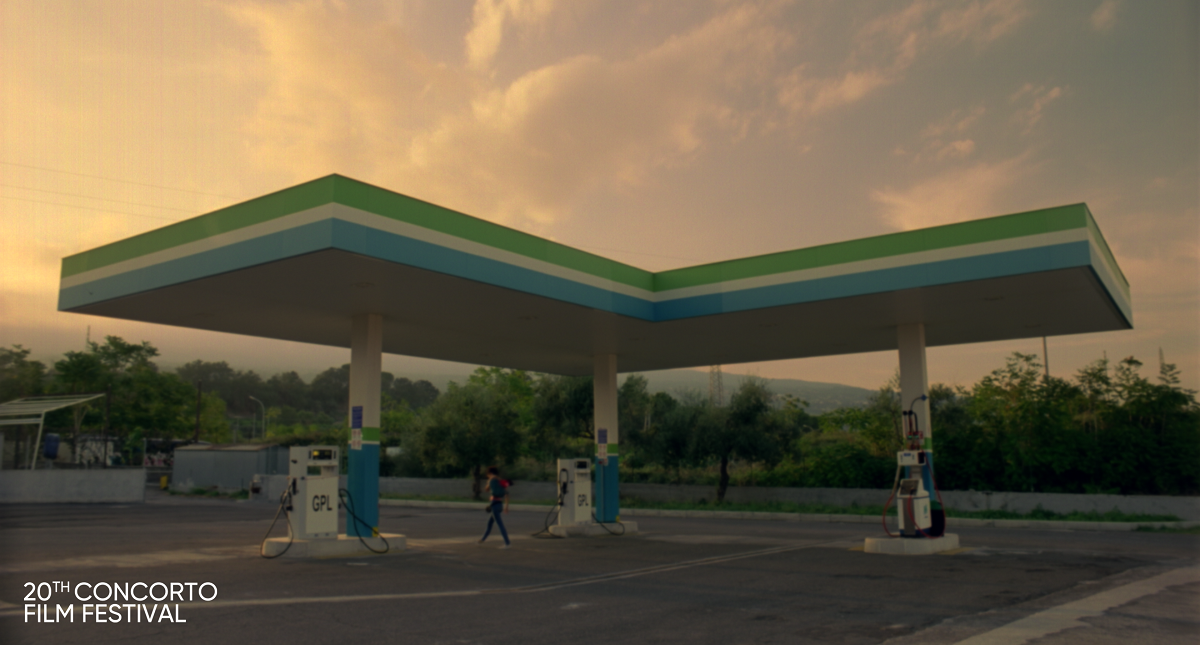
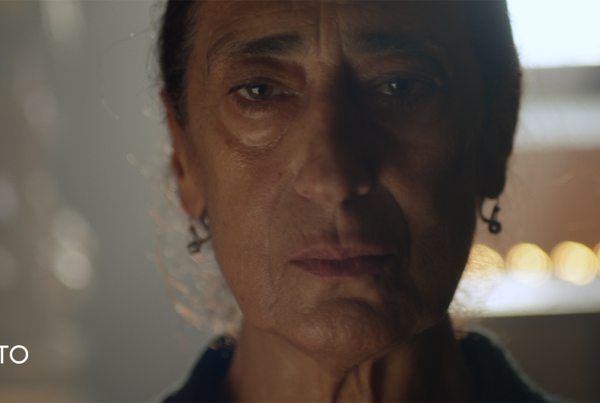
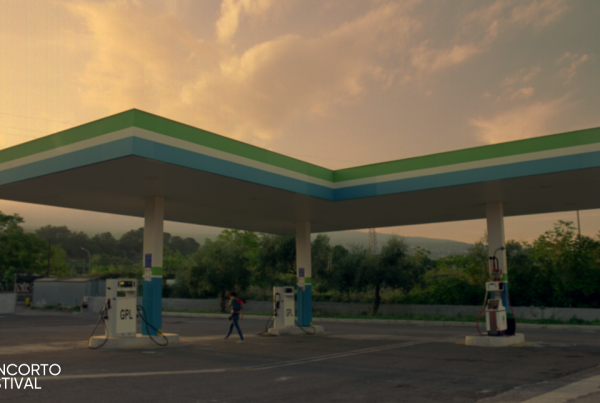
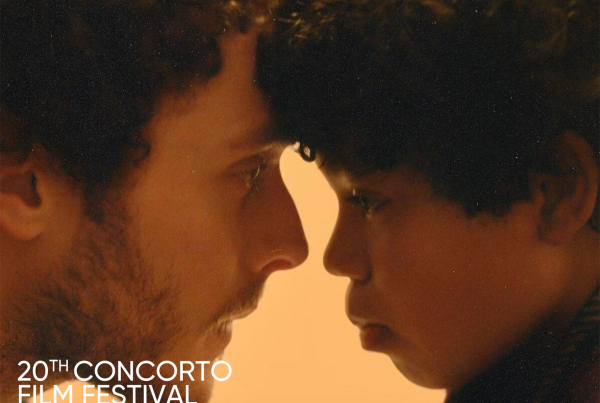
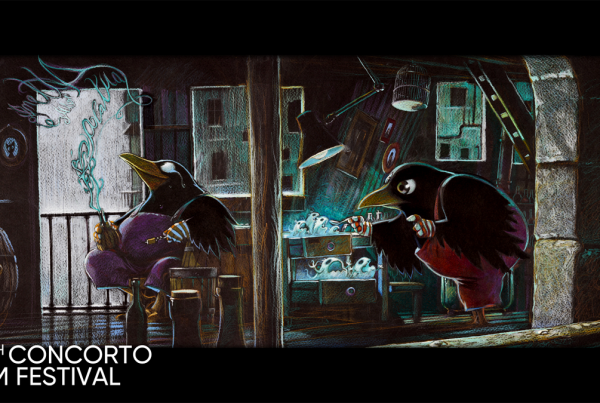






Commenti recenti